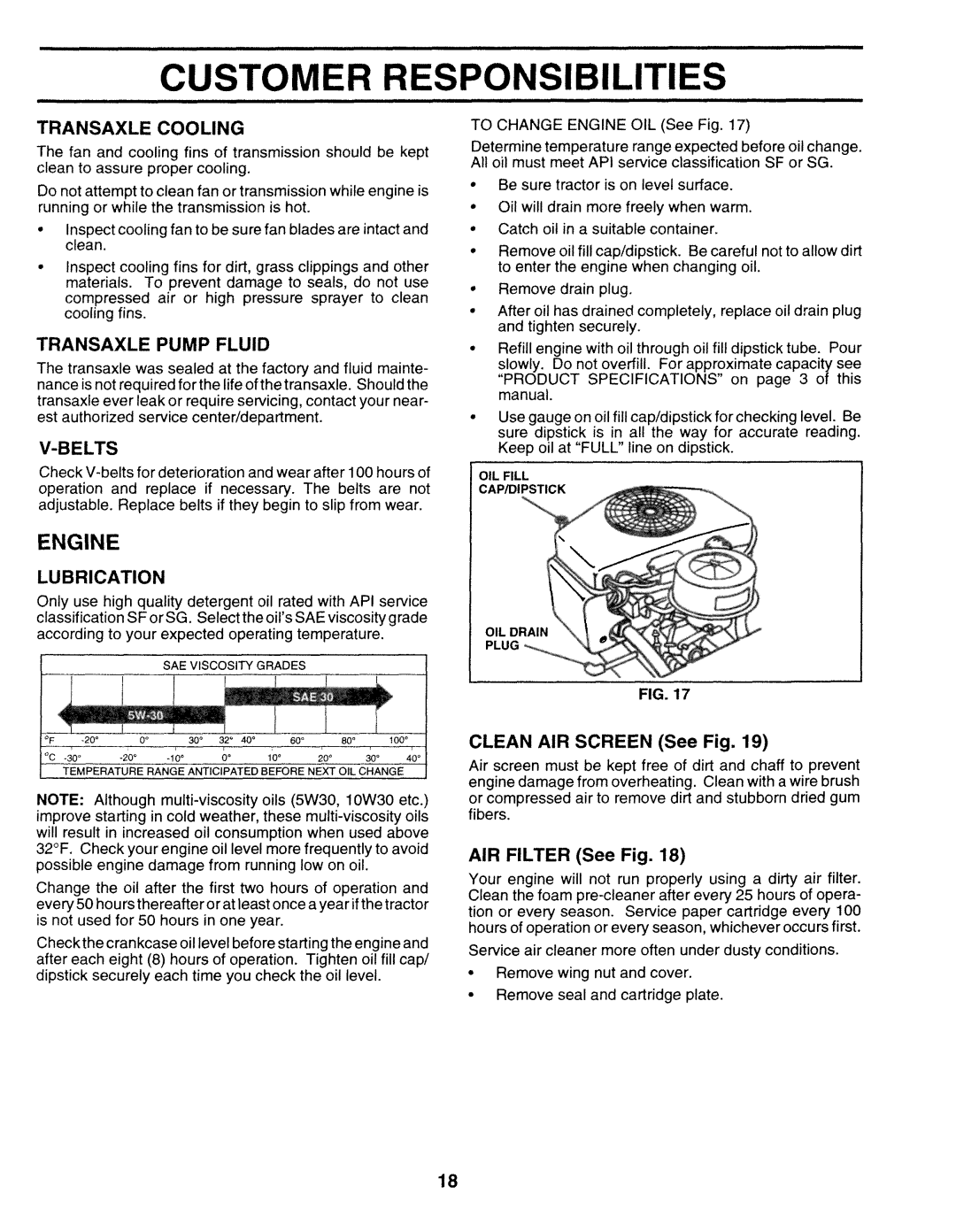917.25271 specifications
The Sears 917.25271 is a robust and versatile garden tractor that has earned its place in the hearts of gardening enthusiasts and lawn care professionals alike. With its impressive blend of features, technologies, and characteristics, this tractor is designed to meet various landscaping and maintenance needs while ensuring user satisfaction and operational efficiency.One of the standout features of the Sears 917.25271 is its powerful engine. Equipped with a strong and reliable gas-powered engine, the tractor delivers ample horsepower to tackle even the toughest mowing jobs. This ensures that users can efficiently manage their lawns, regardless of terrain type or grass thickness. The smooth operation of the engine is complemented by an easy-to-use ignition system, allowing users to start the tractor with minimal effort.
The design of the 917.25271 prioritizes comfort and usability. Its ergonomic seat provides ample cushioning, reducing fatigue during longer mowing sessions. The adjustable seat allows users of different heights to find their optimal driving position, enhancing overall comfort and control. Moreover, the tractor features a user-friendly control panel, enabling easy access to all essential functions such as speed adjustments, blade engagement, and throttle control.
Another notable technology incorporated into the Sears 917.25271 is its advanced cutting system. The tractor includes a durable mower deck that ensures a clean and even cut, contributing to a well-maintained lawn appearance. The ability to easily adjust the cutting height makes it adaptable to different grass types and seasonal variations, ensuring efficient lawn care throughout the year.
Durability is a key characteristic of the 917.25271. Constructed with high-quality materials, it is designed to withstand the rigors of outdoor use. The reinforced chassis and strong tires provide excellent traction and stability on varied terrain, making it suitable for larger lawns and uneven landscapes.
Additionally, the Sears 917.25271 offers versatility through its attachment options. Users can enhance the tractor's capabilities with various accessories such as snow plows, baggers, and tillers. This adaptability allows it to serve multiple functions, making it a valuable tool not just for mowing, but for year-round landscaping projects.
In conclusion, the Sears 917.25271 stands out for its powerful engine, user-friendly design, advanced cutting technology, and unmatched durability. These attributes make it an essential choice for anyone looking to simplify their lawn care routines and achieve professional results.

